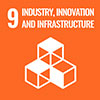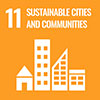The evolution of logistics: past, present and future
The objective of this article is to analyze the evolution of logistics in three different contexts: past, present and future. By looking at where the concept of logistics began and the point it has now reached, we can understand and better anticipate the trends and logistical challenges of the future. We live in an era where digitalization is increasing rapidly, which enables us to obtain more data, more transparency, a greater capacity for anticipating change and a greater automatization of processes. In addition, the health crisis of COVID-19 has only accelerated the use of electronic devices and online tools, as shown by the increasing figures in e-commerce over the last two years. However, the pandemic has also shone a spotlight on the need to rethink the current logistical model. Aspects such as globalization, sustainability, resilience or security throughout the supply chain are in question. In this changing context, the skills and competencies of logistics professionals will undoubtedly decide future success.
ODS




 Marta Viu Roig
Marta Viu RoigDegree in Economic and Business Sciences and doctorate in Business from the University of Barcelona (UB). Lecturer in Economics and Business Studies at the UOC. Her academic activity focuses on subjects in the logistics field. She is currently academic director of the MU in Logistics Management at the UOC and a member of the research group Sustainability, Management and Transport (SUMAT). Her research focuses on the field of logistics applied to various sectors, last-mile logistics and the urban distribution of goods.
 Cristian Castillo
Cristian CastilloCristian Castillo has a doctorate in Business Administration and management and a master’s in Industrial Organization Engineering. He is a technical engineer in Industrial Electronics from the Polytechnic University of Catalonia. He is currently a lecturer in Economics and Business Studies at the UOC, focusing his academic activity on subjects in the field of production and logistics operations. He was also associate professor at the Polytechnic University of Catalonia for one year. Prior to his teaching career, he had accumulated twelve years’ experience in the private sector, where he worked in logistics management. He belongs to the research group Sustainability, Management and Transport (SUMAT), with research interests focusing on the field of business logistics and production operations as well as business organization, particularly in terms of organizational change.



